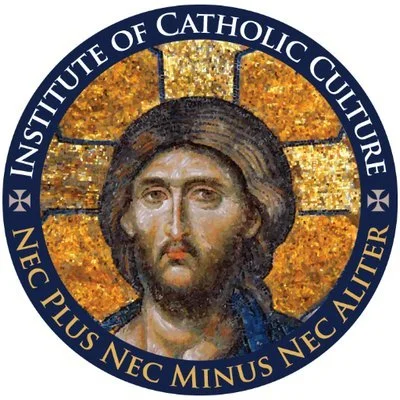Doctrine is an official teaching of the Catholic Church on matters of faith and morals, guided by divine revelation and authoritative interpretation.
Doctrine
Christology
✠
Christology ✠
The Christology course explores theological questions surrounding the person of Jesus Christ, focusing on his divinity, humanity, and role in salvation. Students examine key historical debates, heresies, and the Church's Christological Councils, like Nicaea, Ephesus, and Chalcedon, to understand the development of Christian doctrine regarding Christ. The course also looks at the Old Testament’s Messianic expectations and how they are fulfilled in the New Testament portrayal of Jesus.
The Holy Trinity
✠
The Holy Trinity ✠
This course builds on foundational theology and Christology, focusing on the relational mystery of the Triune God. Students will explore the biblical revelation of God as Father, Son, and Holy Spirit, study heresies denounced by the Church, and learn key Trinitarian concepts, such as the unity of being and distinction of persons. Topics include theories of procession, the filioque controversy, and contributions from Augustine, Aquinas, and Bonaventure, equipping students to present a coherent and orthodox understanding of the Trinity.
Introduction to Moral Theology
✠
Introduction to Moral Theology ✠
This course introduces the basics of moral theology from a Catholic perspective, covering key topics like original justice, original sin, the moral constitution of human acts, and the relationship between the Ten Commandments, the Works of Mercy, and the Beatitudes. Students will learn about mortal and venial sin, human sexuality, and the role of conscience, while preparing to engage deeply with moral theology and its practical applications, particularly in relation to Catholic teachings on marriage, sexuality, and ethical living.
The Ten Commandments: A Scriptural, Theological, and Moral Study
✠
The Ten Commandments: A Scriptural, Theological, and Moral Study ✠
This course examines the Ten Commandments, exploring their Scriptural, dogmatic, and moral contexts. Topics include the relationship between the Decalogue and Natural Law, its role in Torah, and the unity of the commandments as a cohesive moral framework. Each commandment is discussed in-depth, considering its theological and anthropological significance. The course also addresses broader interpretations and applications within the Judeo-Christian Tradition.
Theology 101: Fundamentals of Catholic Doctrine
✠
Theology 101: Fundamentals of Catholic Doctrine ✠
The Theology 101 course provides an introduction to Catholic doctrine, focusing on key theological concepts such as the Trinity, creation, sin, redemption, and the sacraments. It also explores the methods and sources of theology, helping students understand the Church's systematic approach to God's revelation. The course consists of 20 lessons, covering topics like grace, justification, and the last things, with a final exam at the end.
Theology 102: The Development of Doctrine
✠
Theology 102: The Development of Doctrine ✠
The Theology 102 course explores the development of Catholic doctrine over time, focusing on key figures and methods from the Apostolic Fathers through the rise of scholasticism, the Reformation, and modern challenges. Students will examine major theological movements, from early Christological controversies to contemporary trends such as the New Evangelization. The course includes 17 lessons, tracing the historical development of Christian thought and theology, and concludes with a final exam.

